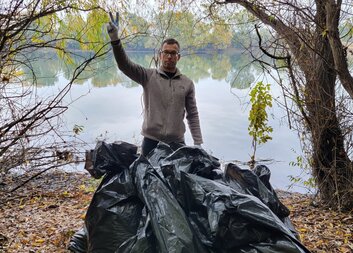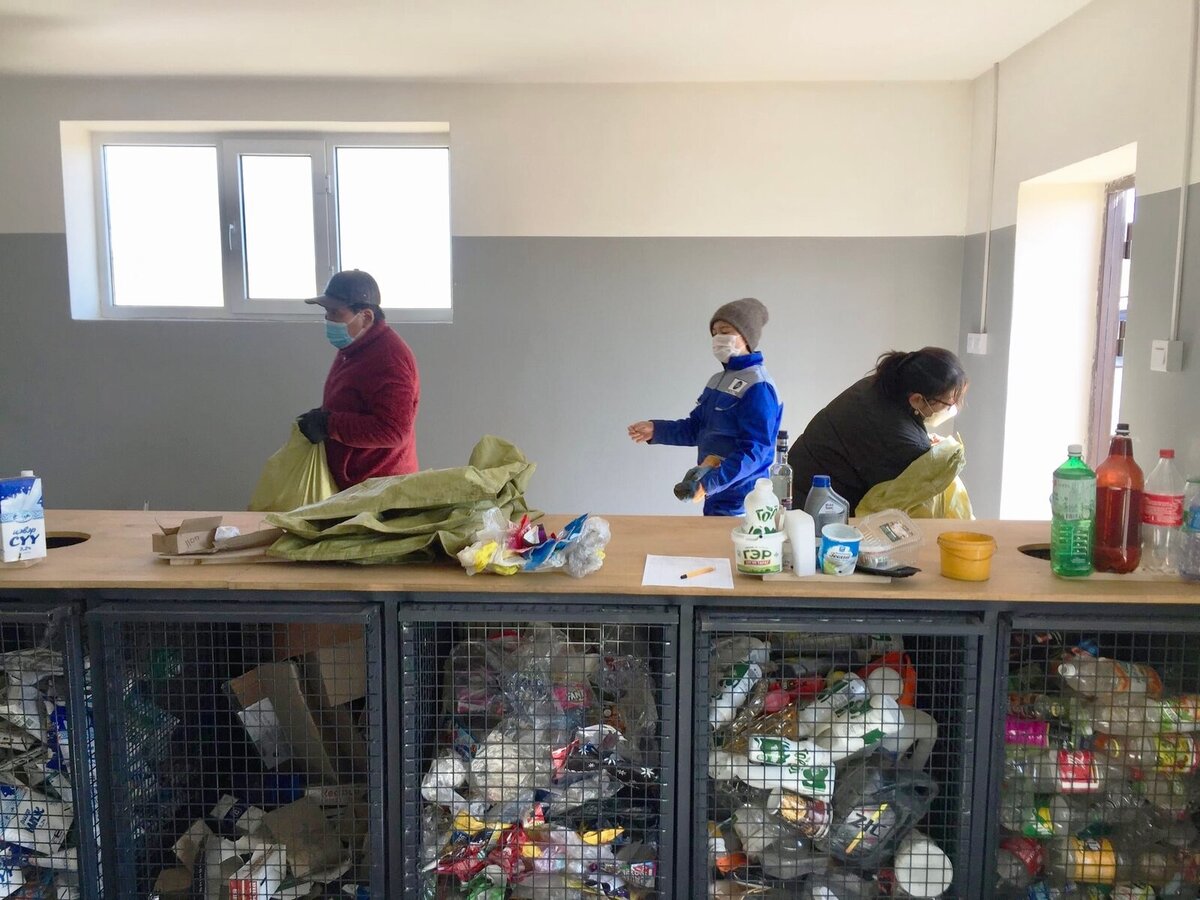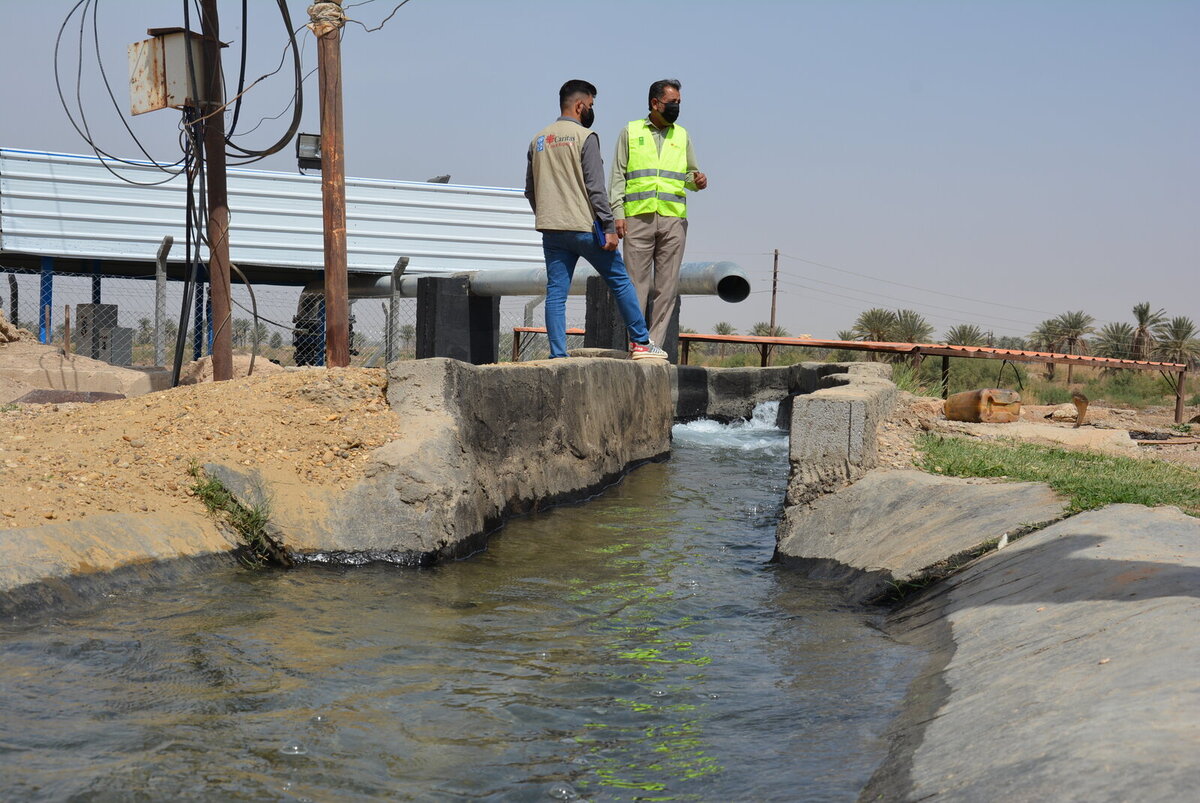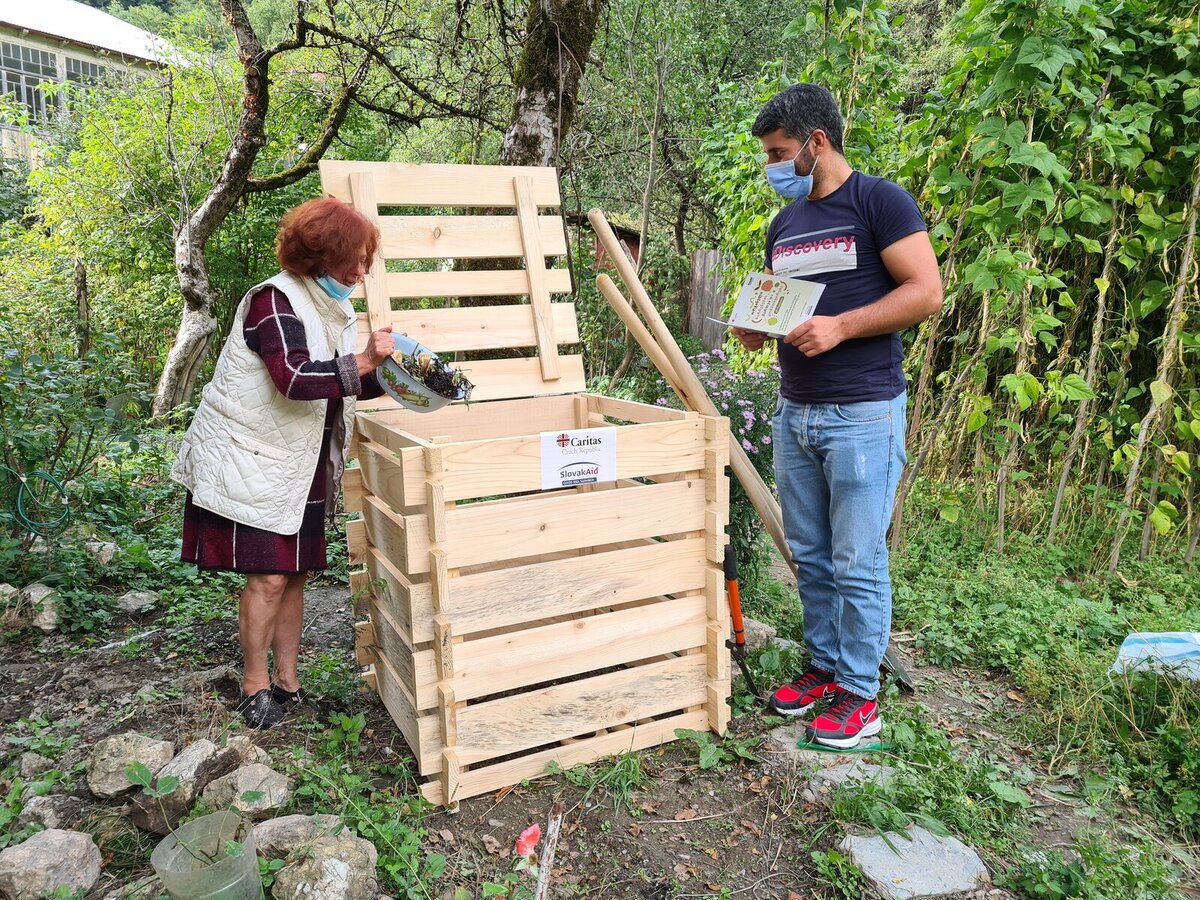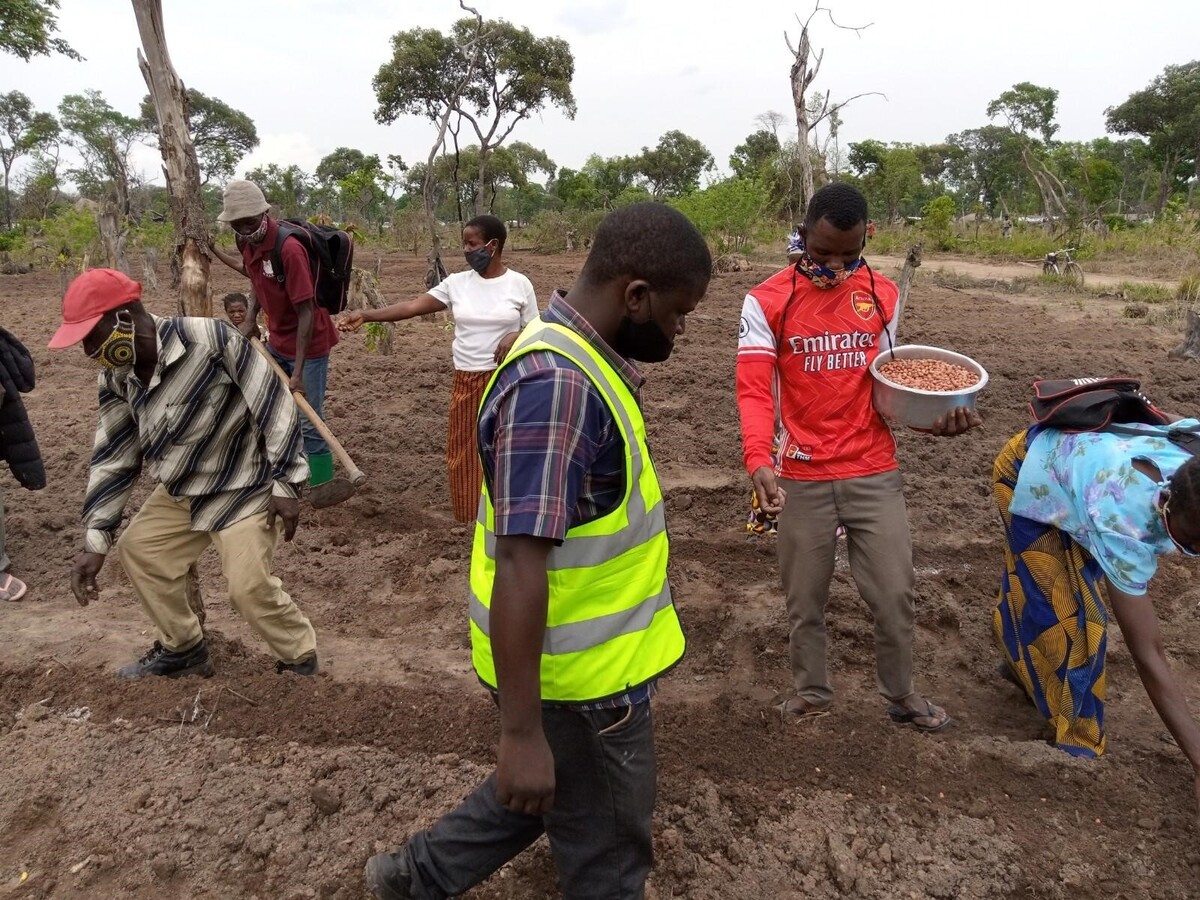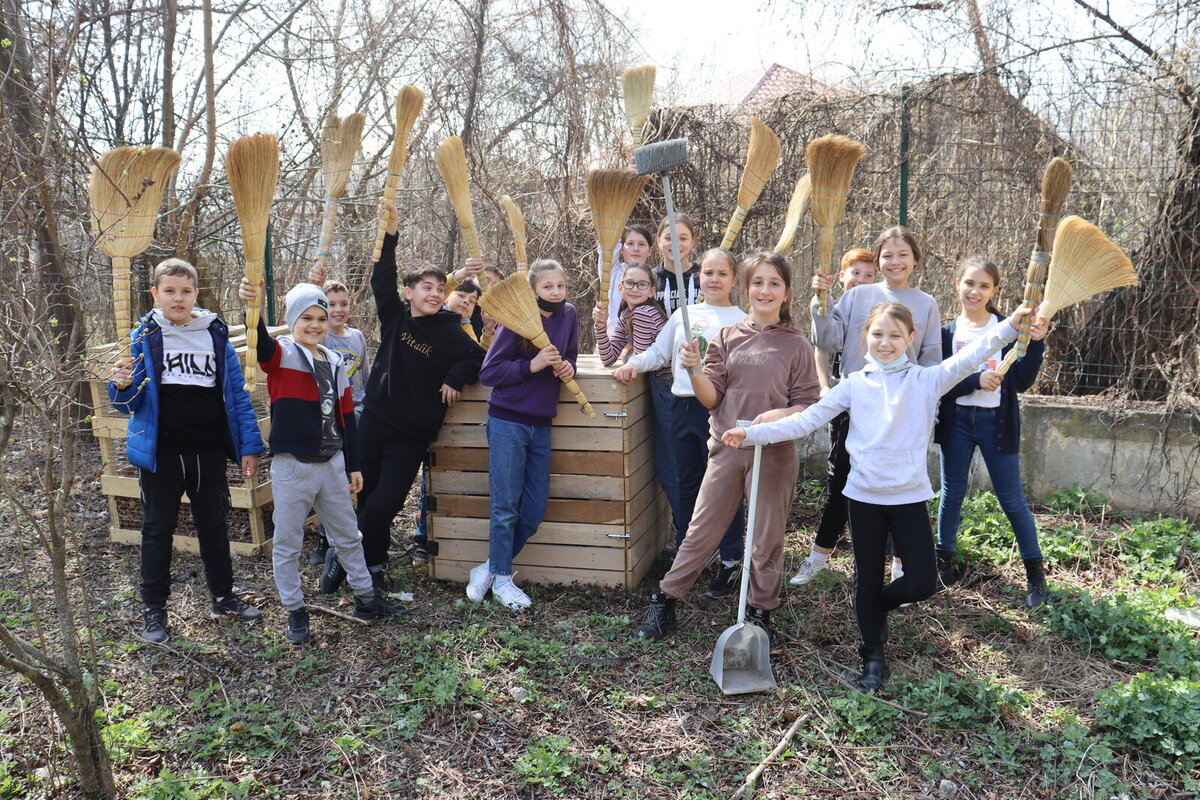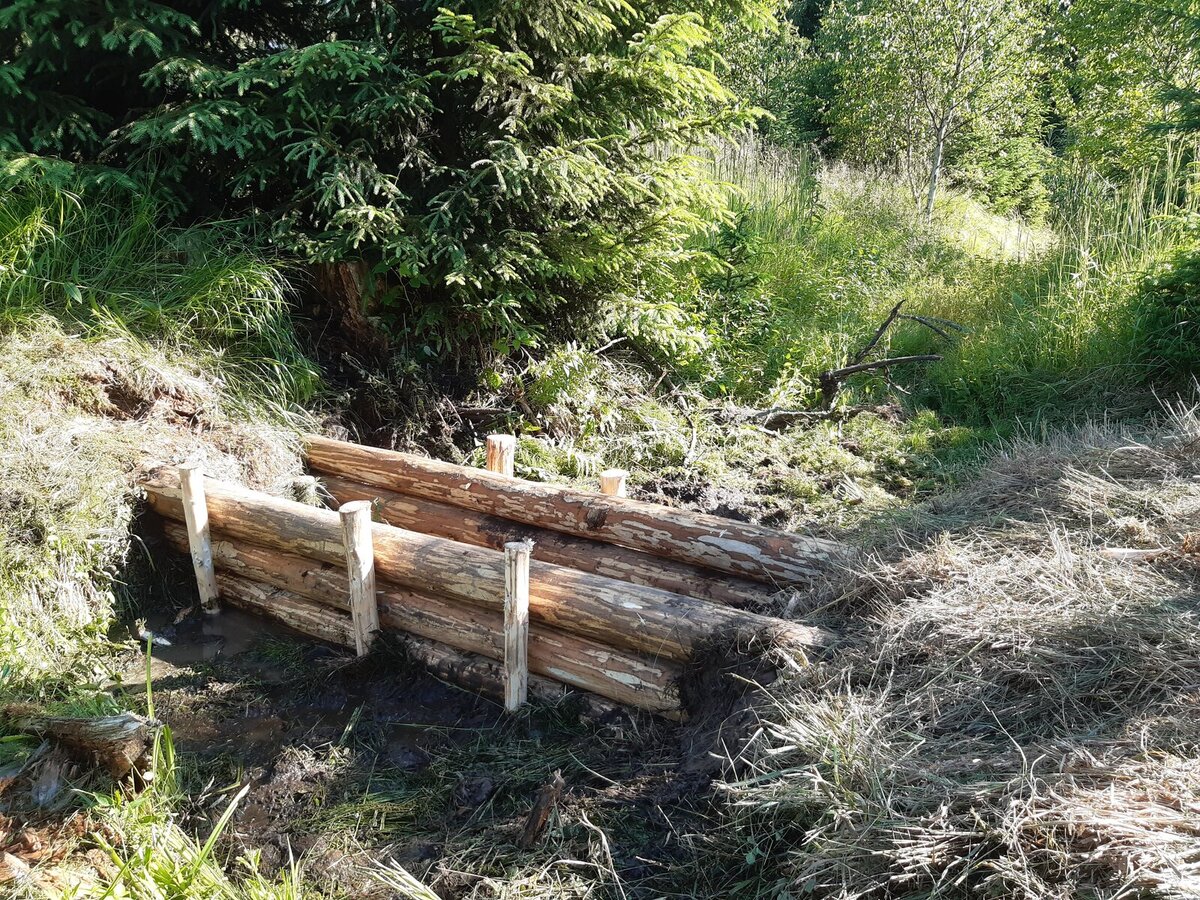On International Earth Day, we remind ourselves why is it important to protect nature and to alert society to the possible negative impact of our activities on the environment. We at Caritas care about the state of our planet too, which is why we help protect it in several ways. Whether it is supporting organic farming in Zambia, educating people about recycling in Mongolia or composting in Georgia.
1. Mongolia's first rural recycling centre was established
The amount of waste, especially plastic waste, and the associated illegal disposal is one of the major problems in Mongolia. The country does not have enough facilities to process the excessive amount of waste that has flooded the country. Thanks to our help, the recycling situation is improving at the city level, however, sustainable waste management is still new in rural areas.
Under our activities focusing on waste management, the partner organization Ecosoum has launched the first Mongolian recycling centre in a rural area. The new facility was opened a month ago and the locals are thrilled. Instead of going to the landfill, they now head here to drop off their sorted waste.
We do much more to protect the environment in Mongolia. Our Caritas team encourage local businesses and residents, including children, to get more involved in waste collection and sorting. We are also focusing on protecting ecosystems in the country, and last year we managed to prevent the contamination of 12,000 square kilometres of land by building eco-toilets. We built these out of sorted plastic material.
2. In Iraq, we improve the access to drinking water
Due to its geographical conditions, Iraq suffers from a chronic shortage of drinking water. The situation has worsened by the war with the self-proclaimed Islamic State. Because of the conflict, many water treatment facilities were also damaged, leaving many people without access to drinking water. Although the country is no longer at war, Iraq is still recovering from the political and economic impact of the conflict.
Our team in Iraq operates 17 water treatment facilities within the Anbar Governorate, which have been renovated recently. The facilities have newly refurbished sedimentation tanks and filters. This means that the local population can drink this water without worrying about their health.
Local farmers, who are suffering from severe drought, also need water. We have therefore repaired a 3-kilometre-long irrigation canal in the district of Al-Heet in central Iraq. Due to sediment and cracks in the canal, the local people could not use it to its full potential. Thanks to our help, the canal is now working as it should again, allowing farmers to irrigate their fields and harvest more crops, and thus earn more money.
3. We support efficient waste management in Georgia
Up to 60 % of waste in Georgian landfills is an organic one, which releases methane and carbon dioxide into the air as it decomposes. These components are not only harmful to health but also contribute negatively to climate change. Composting organic waste is one of the most effective methods of preventing environmental pollution. Caritas Czech Republic has provided composting equipment to 56 family farms and 15 schools in the Racha-Lechkhumi and Kvemo Svaneti region.
Manana Metreveli from the Utsera village also received a wooden composter from us. Manana has been composting in an earthen pit for several years. Because the composter is big, she collects waste from other families in the village as well. As she says, the training from our Caritas team motivates others, including children, to compost. Manana also adds that she always learns something new at waste management training sessions, even though she has been composting for years.
4. Caritas Czech Republic encourages Zambian farmers to adopt conservation farming
We all depend on agricultural production. Unfortunately, some practices, such as trees cutting, cause soil erosion and are, therefore, harmful to the environment. Caritas Czech Republic introduces farmers in Zambia to the principles of conservation farming, which work with minimal soil disturbance and encourage the diversification of flora and fauna. We also ensure that locals have access to the equipment they need. This is the only way to achieve sustainable farming, considering not only the soil itself but water resources as well.
We have provided training on conservation farming to more than 125 farmers from refugee communities. Farmers in sub-Saharan African countries such as Zambia are heavily dependent on rain-fed agriculture. Therefore, our seminar focused on crops that can be grown with minimal rainfall. Farmers also learned how to work with water resources and the advantages of organic fertilizers over chemicals.
5. In Moldova, we support locals in sustainable waste management
Waste management is still a problem in Moldova. While the situation in cities is improving, rural regions still struggle with illegal dumping sites and the lack of an efficient waste management system. One of the municipalities where an effective waste collection system has been lacking so far is Criuleni. Our team is now working there to help the town with a functional and sustainable waste management system. We supplied the city with recycling bins; we also organized training and workshops for the local community so that they can contribute to waste reduction and recycling.
In terms of waste sorting, the Czech Republic has long been at the top of the European Union. Therefore, we share our experience in countries that lack a more sustainable approach to waste management and recycling in general. In Criuleni, we helped to install recycling bins. The collection of solid waste is now much more organised and economical. Residents also appreciate the recycling bins. Our work has made the surrounding area much more pleasant to live in. In addition to that, we also gave 30 composters to the locals, the school and the town hall. "Caritas Czech Republic continues to support us in making Criuleni an environmentally friendly town," said the Mayor of the town.
6. We helped to restore the Jilemnice wetland in North Bohemia
We invest in environmental protection in the Czech Republic as well. Last year, our Global and Development Education department financially supported the restoration of a historic wetland on the outskirts of the village of Jilemnice. The wetland functioned naturally here until the 1970s when an artificial canal was created in the area that drained the location.
20 volunteers from Europe were involved in the restoration of the wetland under the supervision of the Jilemnice Human Rights Association and the non-profit organization INEX SDA. During the two summer weekends, they have created 7 small dams that effectively retain water in the landscape. Immediately after the construction, wetland-seeking fauna such as the diver or dragonfly appeared in the area.
Interested in more articles like this? Read more:
- How is Caritas reducing its environmental footprint
- Climate affects us all. Some countries more than others
- Caritas Czech Republic and Big Terra launch mobile app to help Zambian farmers resist climate change

